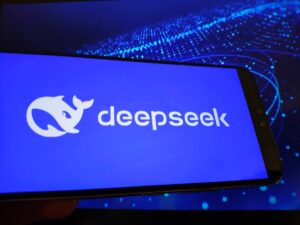China’s AI Advancement: Xiaomi Launches New MiMo-7B Models While DeepSeek Enhances Prover Math AI

Introduction to Xiaomi’s MiMo-7B Model Series
Xiaomi Corp. has recently unveiled MiMo-7B, an innovative family of reasoning models that aims to surpass OpenAI’s o1-mini on specific tasks. This cutting-edge technology is available under an open-source license, allowing for greater accessibility and experimentation by developers and researchers alike.
Overview of MiMo-7B
The MiMo-7B series comprises algorithms with an impressive 7 billion parameters. It features a base model along with enhanced variations that promise higher output quality. Unlike other AI models, Xiaomi is focused on refining the reasoning capabilities, which can be crucial for applications in diverse fields such as programming and mathematics.
Key Features of MiMo-7B
- Parameters: Each model in the MiMo-7B series contains approximately 7 billion parameters, balancing complexity and performance.
- Base and Enhanced Models: The base model is functional but the enhanced versions significantly improve performance in certain applications.
Development Techniques
Xiaomi has implemented two prominent machine learning strategies for developing enhanced versions of MiMo-7B:
- Supervised Fine-Tuning: This method provides additional training data, making it easier for the AI to learn effectively.
- Reinforcement Learning: This approach encourages the model to improve through trial and error, optimizing its responses without pre-defined guidance.
The company has created three distinct enhanced versions based on these techniques, each leveraging specific training strategies. Notably, one model has been fine-tuned using a combination of both methods, demonstrating superior abilities compared to OpenAI’s o1-mini in code generation and solving mathematical problems.
Performance Insights
Despite being a base model, the MiMo-7B is capable of impressive reasoning abilities that may surpass those of much larger models, such as 32B parameter algorithms. Researchers from Xiaomi reported that their experiments indicated extraordinary potential for reasoning improvements in their models.
Competing Technologies: DeepSeek’s Prover-V2
On the same day as the MiMo-7B launch, DeepSeek introduced an updated version of its reasoning model known as Prover-V2. Unlike MiMo-7B, Prover-V2 is specifically tailored to aid mathematicians in proving theorems.
Key Features of Prover-V2
- Focus on Theorems: Prover-V2 aims to provide enhanced capabilities in neural theorem proving, pushing the boundaries of what AI can accomplish in mathematics.
- Training Approach: DeepSeek’s training involved a comprehensive multi-step process. They gathered a database of known theorems and utilized two language models to derive step-by-step explanations of established proofs. This method integrates informal and formal mathematical reasoning into a cohesive framework.
Recent Developments in the AI Landscape
The release of MiMo-7B and Prover-V2 follows closely behind Alibaba Group Holding Ltd.’s introduction of Qwen3, a new series of reasoning-optimized models. Ranging from 600 million to a staggering 235 billion parameters, Alibaba claims that Qwen3 can outperform both OpenAI’s and DeepSeek’s leading models across various tasks.
Conclusion
The emergence of these models illustrates the rapid advancements in AI reasoning capabilities, highlighting the ongoing competition within the open-source AI ecosystem. As companies like Xiaomi, DeepSeek, and Alibaba push the envelope, researchers and developers have a wealth of tools at their disposal to shape the future of artificial intelligence.




